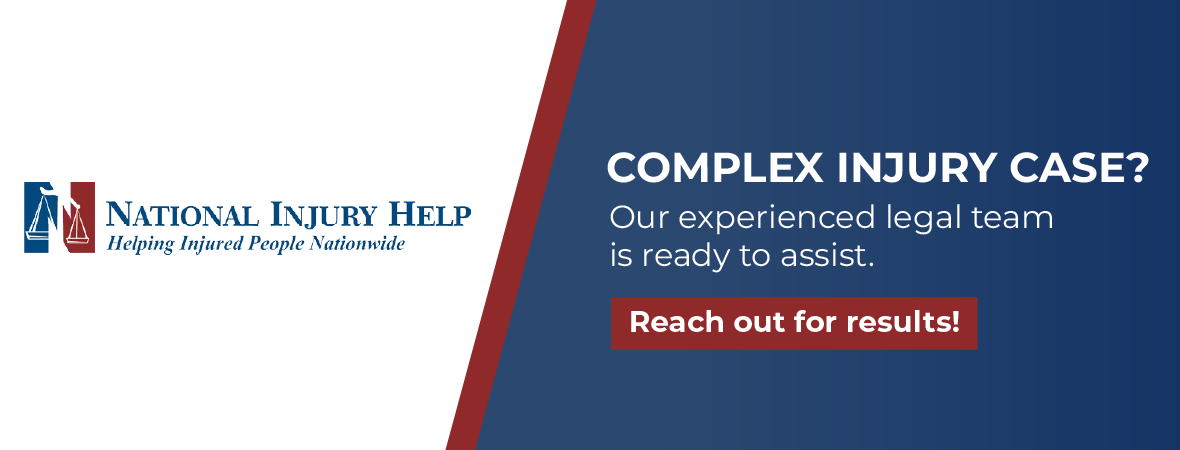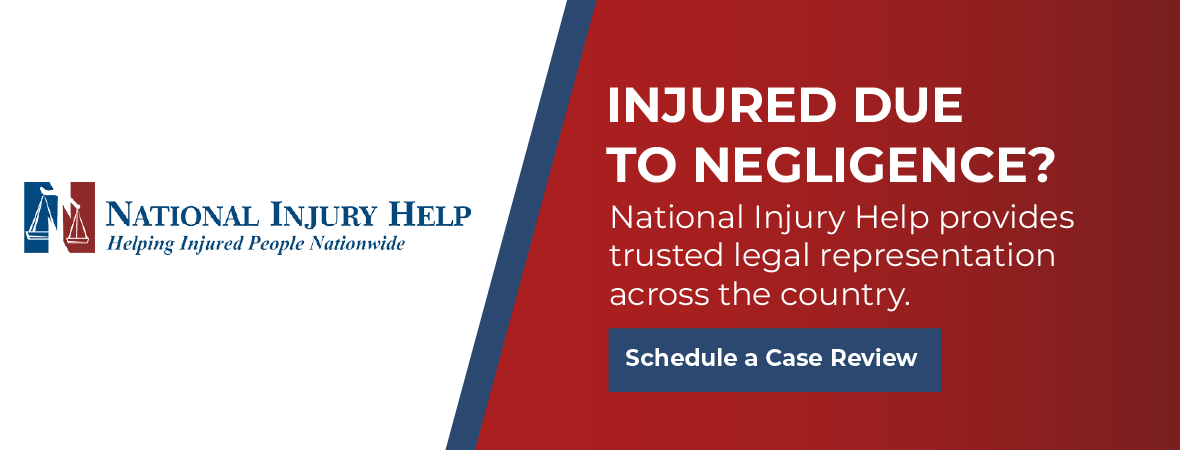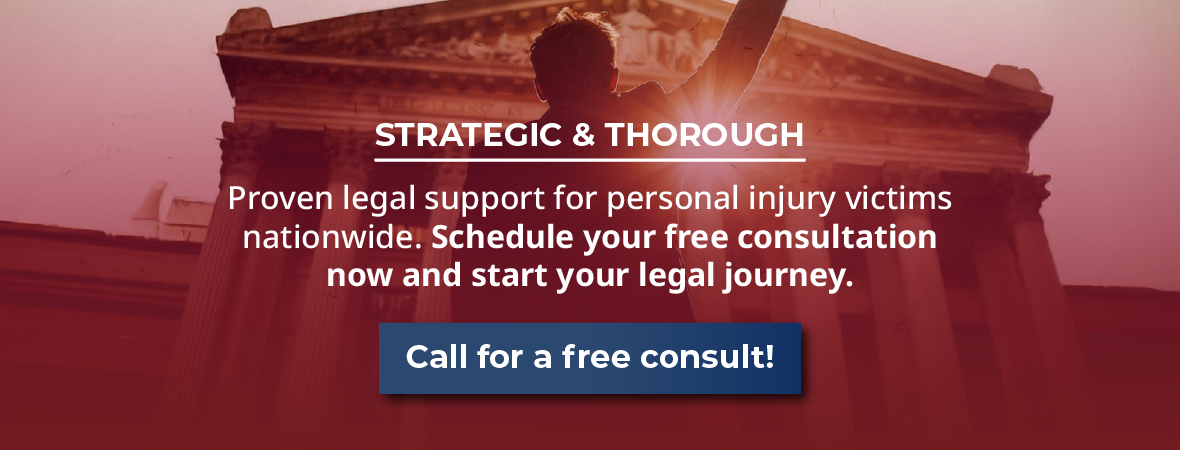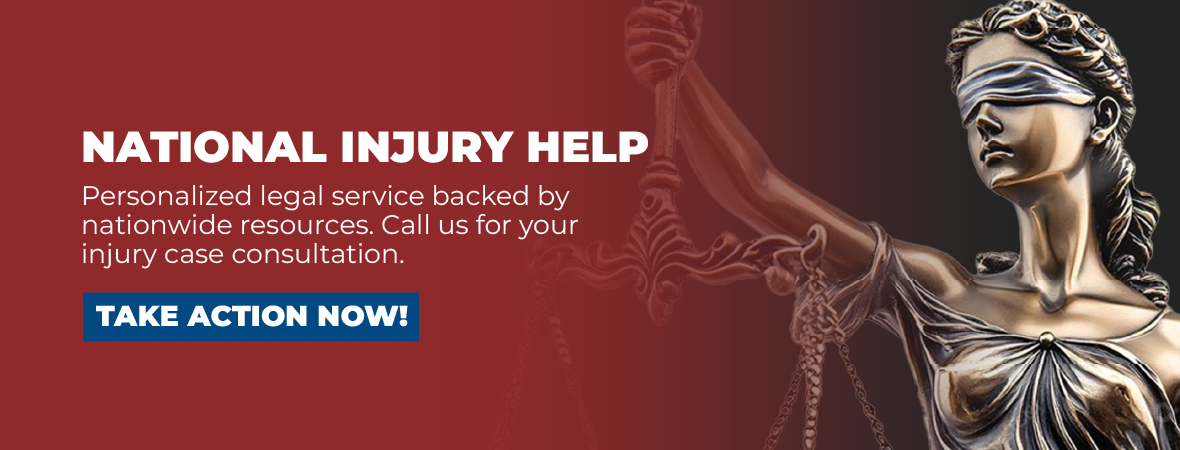- Home
- Accident & Injury
- Areas We Serve
- Arizona
- Arizona
- Avondale
- Avondale Personal Injury Lawyer
- Avondale Car Accident Lawyer
- Avondale Truck Accident Lawyer
- Avondale Bicycle Accident Lawyer
- Avondale Pedestrian Accident Lawyer
- Avondale Motorcycle Accident Lawyer
- Avondale Rideshare Accident Lawyer
- Avondale Wrongful Death Attorney
- Avondale Dog Bite Lawyer
- Avondale Brain Injury Attorney
- Buckeye
- Buckeye Personal Injury Lawyer
- Buckeye Car Accident Lawyer
- Buckeye Truck Accident Lawyer
- Buckeye Motorcycle Accident Lawyer
- Buckeye Bicycle Accident Lawyer
- Buckeye Pedestrian Accident Lawyer
- Buckeye Rideshare Accident Lawyer
- Buckeye Wrongful Death Attorney
- Buckeye Dog Bite Lawyer
- Buckeye Brain Injury Attorney
- Casa Grande
- Casa Grande Personal Injury Lawyer
- Casa Grande Car Accident Lawyer
- Casa Grande Truck Accident Lawyer
- Casa Grande Motorcycle Accident Lawyer
- Casa Grande Bicycle Accident Lawyer
- Casa Grande Pedestrian Accident Lawyer
- Casa Grande Rideshare Accident Lawyer
- Casa Grande Wrongful Death Attorney
- Casa Grande Brain Injury Attorney
- Casa Grande Dog Bite Lawyer
- Chandler
- Chandler Personal Injury Lawyer
- Chandler Car Accident Lawyer
- Chandler Truck Accident Lawyer
- Chandler Motorcycle Accident Lawyer
- Chandler Bicycle Accident Lawyer
- Chandler Rideshare Accident Lawyer
- Chandler Pedestrian Accident Lawyer
- Chandler Wrongful Death Attorney
- Chandler Dog Bite Lawyer
- Chandler Brain Injury Attorney
- Florence
- Florence Personal Injury Lawyer
- Florence Car Accident Lawyer
- Florence Truck Accident Lawyer
- Florence Motorcycle Accident Lawyer
- Florence Bicycle Accident Lawyer
- Florence Pedestrian Accident Lawyer
- Florence Rideshare Accident Lawyer
- Florence Dog Bite Accident Lawyer
- Florence Brain Injury Attorney
- Florence Wrongful Death Attorney
- Gilbert
- Gilbert Personal Injury Lawyer
- Gilbert Car Accident Lawyer
- Gilbert Truck Accident Lawyer
- Gilbert Motorcycle Accident Lawyer
- Gilbert Bicycle Accident Lawyer
- Gilbert Pedestrian Accident Lawyer
- Gilbert Rideshare Accident Lawyer
- Gilbert Wrongful Death Attorney
- Gilbert Dog Bite Lawyer
- Gilbert Brain Injury Attorney
- Glendale
- Glendale Personal Injury Lawyer
- Glendale Car Accident Lawyer
- Glendale Truck Accident Lawyer
- Glendale Motorcycle Accident Lawyer
- Glendale Bicycle Accident Lawyer
- Glendale Pedestrian Accident Lawyer
- Glendale Rideshare Accident Lawyer
- Glendale Wrongful Death Attorney
- Glendale Dog Bite Lawyer
- Glendale Brain Injury Attorney
- Goodyear
- Goodyear Personal Injury Lawyer
- Goodyear Car Accident Lawyer
- Goodyear Truck Accident Lawyer
- Goodyear Motorcycle Accident Lawyer
- Goodyear Bicycle Accident Lawyer
- Goodyear Rideshare Accident Lawyer
- Goodyear Pedestrian Accident Lawyer
- Goodyear Wrongful Death Attorney
- Goodyear Brain Injury Attorney
- Goodyear Dog Bite Lawyer
- Mesa
- Peoria
- Phoenix
- Phoenix Personal Injury Lawyer
- Phoenix Car Accident Lawyer
- Phoenix Truck Accident Lawyer
- Phoenix Motorcycle Accident Lawyer
- Phoenix Bicycle Accident Lawyer
- Phoenix Pedestrian Accident Lawyer
- Phoenix Rideshare Accident Lawyer
- Phoenix Wrongful Death Attorney
- Phoenix Dog Bite Lawyer
- Phoenix Brain Injury Attorney
- Scottsdale
- Scottsdale Personal Injury Lawyer
- Scottsdale Car Accident Lawyer
- Scottsdale Truck Accident Lawyer
- Scottsdale Motorcycle Accident Lawyer
- Scottsdale Bicycle Accident Lawyer
- Scottsdale Pedestrian Accident Lawyer
- Scottsdale Rideshare Accident Lawyer
- Scottsdale Wrongful Death Attorney
- Scottsdale Brain Injury Attorney
- Scottsdale Dog Bite Lawyer
- Surprise
- Surprise Personal Injury Lawyer
- Surprise Car Accident Lawyer
- Surprise Truck Accident Lawyer
- Surprise Motorcycle Accident Lawyer
- Surprise Bicycle Accident Lawyer
- Surprise Pedestrian Accident Lawyer
- Surprise Rideshare Accident Lawyer
- Surprise Wrongful Death Attorney
- Surprise Dog Bite Lawyer
- Surprise Brain Injury Attorney
- Tempe
- Tucson
- Yuma
- California
- San Diego
- Carlsbad
- Chula Vista
- Coronado
- EI Cajon and La Mesa
- Escondido and San Marcos
- Fallbrook
- Hillcrest
- Lakeside
- Lemon Grove
- Oceanside
- Pacific Beach & Mission Beach
- Poway
- Santee
- Washington
- Yakima
- Vancouver
- Vancouver Personal Injury Lawyer
- Vancouver Car Accident Lawyer
- Vancouver Brain Injury Attorney
- Vancouver Truck Accident Lawyer
- Vancouver Motorcycle Accident Lawyer
- Vancouver Bicycle Accident Lawyer
- Vancouver Pedestrian Accident Lawyer
- Vancouver Rideshare Accident Lawyer
- Vancouver Wrongful Death Attorney
- Vancouver Dog Bite Lawyer
- Washington State
- Washington State Personal Injury
- Washington State Car Accident Lawyer
- Washington State Brain Injury Attorney
- Washington State Truck Accident Lawyer
- Washington State Motorcycle Accident Lawyer
- Washington State Bicycle Accident Lawyer
- Washington State Pedestrian Accident Lawyer
- Washington State Rideshare Accident Lawyer
- Washington State Wrongful Death Attorney
- Washington State Dog Bite Lawyer
- Spokane Valley
- Personal Injury in Spokane Valley
- Spokane Valley Car Accident Lawyer
- Spokane Valley Brain Injury Attorney
- Spokane Valley Truck Accident Claims
- Spokane Valley Motorcycle Accident Lawyer
- Spokane Valley Bicycle Accident Lawyer
- Spokane Valley Pedestrian Accident Lawyer
- Spokane Valley Rideshare Accident Lawyer
- Spokane Valley Wrongful Death Attorney
- Spokane Valley Dog Bite Lawyer
- Tacoma
- Spokane
- Spokane Personal Injury Lawyer
- Car Accident Lawyer in Spokane
- Spokane Brain Injury Attorney
- Spokane Truck Accident Lawyer
- Spokane Motorcycle Accident Lawyer
- Spokane Bicycle Accident Lawyer
- Spokane Rideshare Accident Lawyer
- Spokane Pedestrian Accident Lawyer
- Spokane Wrongful Death Attorney
- Spokane Dog Bite Lawyer
- Seattle
- Seattle Personal Injury Lawyer
- Seattle Car Accident Lawyer
- Seattle Brain Injury Attorney
- Seattle Truck Accident Lawyer
- Seattle Motorcycle Accident Lawyer
- Seattle Bicycle Accident Lawyer
- Seattle Pedestrian Accident Lawyer
- Seattle Rideshare Accident Lawyer
- Seattle Wrongful Death Attorney
- Seattle Dog Bite Lawyer
- Renton
- Auburn
- Bellingham
- Bellingham Personal Injury Lawyer
- Bellingham Car Accident Lawyer
- Bellingham Brain Injury Attorney
- Bellingham Truck Accident Lawyer
- Bellingham Motorcycle Accident Lawyer
- Bellingham Bicycle Accident Lawyer
- Bellingham Pedestrian Accident Lawyer
- Bellingham Rideshare Accident Lawyer
- Bellingham Wrongful Death Attorney
- Bellingham Dog Bite Lawyer
- Redmond
- Redmond Personal Injury Attorney
- Redmond Car Accident Lawyer
- Redmond Brain Injury Attorney
- Redmond Truck Accident Lawyer
- Redmond Motorcycle Accident Lawyer
- Redmond Bicycle Accident Lawyer
- Redmond Pedestrian Accident Lawyer
- Redmond Rideshare Accident Lawyer
- Redmond Wrongful Death Attorney
- Redmond Dog Bite Lawyer
- Bellevue
- Bellevue Personal Injury Lawyer
- Bellevue Car Accident Lawyer
- Bellevue Brain Injury Attorney
- Bellevue Truck Accident Lawyer
- Bellevue Bicycle Accident Lawyer
- Bellevue Motorcycle Accident Lawyer
- Bellevue Pedestrian Accident Lawyer
- Bellevue Rideshare Accident Lawyer
- Bellevue Wrongful Death Attorney
- Bellevue Dog Bite Lawyer
- Kent
- Federal Way
- Federal Way Personal Injury Lawyer
- Federal Way Car Accident Lawyer
- Federal Way Brain Injury Attorney
- Federal Way Truck Accident Lawyer
- Federal Way Motorcycle Accident Lawyer
- Federal Way Bicycle Accident Lawyer
- Federal Way Pedestrian Accident Lawyer
- Federal Way Rideshare Accident Lawyer
- Federal Way Wrongful Death Attorney
- Federal Way Dog Bite Lawyer
- Kirkland
- Kirkland Personal Injury Lawyer
- Kirkland Car Accident Lawyer
- Kirkland Brain Injury Lawyer
- Kirkland Truck Accident Lawyer
- Kirkland Motorcycle Accident Lawyer
- Kirkland Bicycle Accident Lawyer
- Kirkland Pedestrian Accident Lawyer
- Kirkland Rideshare Accident Lawyer
- Kirkland Wrongful Death Attorney
- Kirkland Dog Bite Lawyer
- Everett
- Arizona
- Defective Drugs
- Defective Products
- Other Case Types
- Blog
- Contact Us
Hablamos Espanol - Call 24/7 1 (800) 214-1010
Abuse and Exploitation Lawsuits: Standing Up for Survivors and Holding Institutions Accountable
At National Injury Help, we stand ready to assist survivors in navigating their legal rights and seeking the compensation they deserve. If you or someone you know has faced abuse in any form, don’t hesitate to reach out. Our compassionate legal team is here to listen, support, and fight for your rights. Contact National Injury Help today to discuss your case and take the first step toward healing and justice.
Abuse and exploitation cause deep, lasting scars through betrayal of trust. When institutions are meant to keep us safe instead of enabling or committing harm, the consequences can be severe. At National Injury Help, we recognize the pain and trauma survivors experience and are committed to offering compassionate legal aid to those affected by abuse and exploitation across various settings. Whether you were harmed by a rideshare driver, a clergy member, in a juvenile detention center, or online, we are here to help you understand your rights and pursue justice and compensation.
A Variety of Contexts, One Common Thread
Abuse and exploitation can take many forms and occur in various contexts, shattering the lives of countless individuals. While the specific details of each case may differ, a common thread runs through all of them: a violation of trust, a misuse of power, and a profound disregard for the victim’s well-being. Some of the most prevalent contexts in which abuse and exploitation occur are:
- Rideshare Services: The convenience and accessibility of rideshare services have made them a popular mode of transportation for millions of people. However, the lack of adequate background checks and safety measures has created opportunities for sexual assault and other forms of abuse by drivers. Passengers who place their trust in rideshare companies to transport them safely have been victimized by drivers who abuse their position of authority.
- Religious Institutions and Clergy Members: Religious institutions hold a position of immense trust within communities. Sadly, this trust is sometimes violated by clergy members and other religious leaders who engage in sexual abuse, financial exploitation, and other forms of misconduct. These betrayals can have a devastating impact on the victims and erode faith in the institution itself.
- Juvenile Detention Centers: These facilities are meant to rehabilitate and protect young people who have come into contact with the law. However, all too often, juvenile detention centers become breeding grounds for abuse and exploitation, with vulnerable youth subjected to physical violence, sexual assault, and emotional trauma at the hands of staff members or other inmates. The very institutions designed to help these young people instead cause them irreversible harm.
- Online Platforms (e.g., Roblox): The digital age has created new avenues for exploitation and abuse, particularly targeting children and teenagers. Online platforms like Roblox, which are popular among young people, have faced criticism for failing to adequately protect users from grooming, sexual exploitation, and other forms of online abuse. The anonymity and lack of oversight on these platforms can make it difficult to identify and stop predators, leaving children vulnerable to harm.
The Role of Institutional Cover-Ups in Perpetuating Abuse
One of the most harmful aspects of abuse and exploitation is how institutions often cover up allegations to protect their reputation, financial interests, and influential members. This culture of concealment can further traumatize victims and allow perpetrators to continue causing harm. Common tactics used by institutions to hide abuse include:
-
Discrediting Victims
Institutions may attempt to discredit victims by questioning their motives, attacking their credibility, or portraying them as mentally unstable.
-
Silencing Victims
Institutions may use threats, intimidation, or financial settlements to pressure victims into remaining silent about the abuse.
-
Transferring Abusers
Some institutions simply transfer abusers to other locations, allowing them to continue harming others without facing any consequences.
-
Destroying or Concealing Evidence
Institutions may destroy or conceal documents, records, or other evidence that could support allegations of abuse.
-
Creating a Culture of Fear
Institutions may create a culture of fear that discourages employees or members from reporting abuse.
-
Denying Responsibility
Institutions may deny any knowledge of the abuse or claim that it was an isolated incident.
Transparency and accountability are vital for preventing future abuse and fostering a culture of safety within institutions. Whistleblowers who expose misconduct should be protected and supported, and institutions must be held responsible for their actions.
Recent Legal Actions and Settlements: Holding Institutions Accountable
In recent years, there has been a growing wave of legal actions and settlements related to abuse and exploitation claims across various sectors. These cases reflect a growing societal awareness of the prevalence of abuse and a determination to hold negligent institutions accountable. Some notable examples include:
- Los Angeles County Juvenile Detention Abuse Settlement: In a landmark case, Los Angeles County approved a staggering $4 billion settlement to resolve nearly 7,000 sexual abuse claims involving its juvenile facilities dating back to 1959. This settlement underscores the widespread and systemic nature of abuse within these institutions and provides a measure of justice and compensation to the thousands of victims who suffered harm. This is the most significant amount they’ve ever paid out.
- LDS Church Abuse Claims: The Church of Jesus Christ of Latter-day Saints (LDS Church) is currently facing an escalating legal landscape, with numerous lawsuits alleging sexual abuse and systematic cover-ups spanning decades. These lawsuits are challenging the church’s institutional practices and demanding greater accountability for the protection of children.
- Legal Actions Against Roblox: Roblox Corporation is facing an increasing number of lawsuits alleging that its platform enables and facilitates the sexual exploitation of minors. These lawsuits claim that Roblox failed to implement adequate safety measures to protect its young users from grooming, online sexual abuse, and other forms of exploitation.
These legal actions demonstrate that institutions that fail to protect individuals from abuse and exploitation can be held liable for the harm they cause. While settlements can never fully undo the damage caused by abuse, they can provide victims with the financial resources they need to heal, rebuild their lives, and pursue their futures.
Understanding Your Legal Rights: A Path to Justice and Healing
If you have been a victim of abuse or exploitation, it’s essential to understand your legal rights and explore your options for seeking justice and compensation. Here’s what you should know:
- You May Have Grounds for a Lawsuit: Depending on the circumstances of your case, you may be able to file a lawsuit against the individual perpetrator of the abuse, as well as the institution or organization that enabled or failed to prevent the abuse.
- Types of Claims: Potential legal claims may include:
- Negligence: Alleging that the institution or organization failed to exercise reasonable care in protecting you from harm.
- Intentional Infliction of Emotional Distress: Claiming that the perpetrator’s actions caused you severe emotional distress.
- Assault and Battery: Alleging that you were subjected to unwanted physical contact or threats of violence.
- Sexual Assault/Abuse: Claiming that you were subjected to non-consensual sexual contact.
- Fraud: If someone used a fraudulent method to cause harm to you, this may be grounds for a lawsuit.
- Damages: In a successful abuse or exploitation lawsuit, you may be able to recover damages for:
- Medical expenses
- Therapy costs
- Lost wages
- Pain and suffering
- Punitive damages (in some cases)
- Statute of Limitations: It is critical to consult with an attorney as soon as possible to determine the statute of limitations that applies to your case. The statute of limitations sets a time limit for filing a lawsuit, and if you miss the deadline, your claim may be barred. Some states have laws that specifically allow for abuse claims to be filed regardless of when the abuse occurred.
What to Expect When Filing an Abuse or Exploitation Claim
Deciding to file a lawsuit to address the abuse or exploitation you experienced is a brave and important step. The legal process can be complicated and emotionally tough, so understanding what to expect can help you feel more in control and confident about the situation.
Here’s a general overview of the key stages involved in filing an abuse or exploitation claim:
-
Initial Consultation and Case Evaluation:
Your path to justice begins with a confidential consultation with an experienced attorney specializing in abuse and exploitation cases. During this consultation, the attorney will listen to your story with empathy and without judgment. They will ask sensitive questions about the nature of the abuse, the individuals involved, the timeframe of the abuse, and the impact it has had on your life. This consultation is a safe space for you to share your experiences and for the attorney to assess the legal viability of your claim. Factors that will be considered include the type of abuse, the setting in which it occurred, the laws in your jurisdiction, and the availability of evidence.
-
Evidence Gathering and Investigation:
If, after the initial consultation, you choose to proceed, your attorney will begin a thorough investigation to gather evidence supporting your claim. This may involve:
- Obtaining and reviewing any available records related to the abuse, such as police reports, medical records, therapy notes, school records, or internal reports from the institution where the abuse occurred.
- Identifying and interviewing potential witnesses, such as other victims, bystanders, or individuals who knew about the abuse.
- Consulting with experts, such as psychologists or psychiatrists, who can provide testimony about the psychological and emotional impact of the abuse.
- Conducting background checks on the alleged abuser and investigating their history of misconduct.
- Researching the policies, procedures, and past practices of the institution or organization where the abuse occurred.
-
Filing the Complaint:
Once sufficient evidence has been gathered, your attorney will draft a formal complaint, which is the document that officially initiates the lawsuit. The complaint will outline the specific allegations of abuse and exploitation, the legal basis for your claim, and the damages you are seeking. The complaint will then be filed with the appropriate court, and a copy will be served on the defendants, notifying them of the lawsuit.
-
Discovery Phase:
After the complaint is filed, the case enters the discovery phase, a formal process for exchanging information and evidence between the parties. This may involve:
- Interrogatories: Written questions that the parties must answer under oath.
- Document Requests: Requests for the other party to provide specific documents related to the case.
- Depositions: Sworn oral testimony taken from witnesses, parties, or experts.
-
Settlement Negotiations:
Throughout the litigation process, your attorney will engage in settlement negotiations with the defendants in an effort to reach a resolution without going to trial. Settlement negotiations may involve informal discussions, formal mediation sessions, or meetings with a judge or arbitrator. Your attorney will advise you on the strengths and weaknesses of your case and will represent your best interests during these negotiations.
-
Trial (If Needed):
If a settlement cannot be reached, the case will proceed to trial. At trial, your attorney will present evidence, call witnesses, and argue your case before a judge or jury. The defendants will also have the opportunity to present their side of the story.
Filing Anonymously or Under a Pseudonym
We understand that many survivors of abuse and exploitation have concerns about protecting their privacy. Filing a lawsuit can be a very public process, and many victims are understandably hesitant to come forward and share their stories. Fortunately, in many jurisdictions, it is possible to file a lawsuit anonymously or under a pseudonym, protecting your identity from public disclosure. Your attorney can advise you on whether this option is available in your jurisdiction and can take the necessary steps to protect your privacy throughout the legal process.
Resources for Survivors on the Path to Recovery
Healing from the trauma of abuse is a long and challenging process, but it is possible to rebuild your life and find peace. Accessing appropriate resources and building a strong support system are essential for recovery. Filing a lawsuit can be a crucial step in healing and provide resources to attend to or make the most of:
- Therapy: Individual therapy, group therapy, and specialized trauma therapy (such as EMDR or cognitive processing therapy) can help survivors process their trauma, develop coping mechanisms, and heal from the long-term effects of abuse.
- Support Groups: Connecting with other survivors in a support group can provide a sense of community, validation, and understanding.
- Advocacy Organizations: These organizations provide a range of services to survivors of abuse, including legal assistance, counseling, and advocacy.
- Hotlines and Crisis Lines: Crisis hotlines and helplines offer immediate support and resources for individuals experiencing emotional distress or suicidal thoughts.
- Self-Care: Engaging in self-care activities, such as exercise, meditation, spending time in nature, and pursuing hobbies, can help reduce stress, improve mood, and promote overall well-being.
- Building a Support System: Connecting with trusted friends, family members, or mentors can provide emotional support and encouragement during the healing process.
Reporting abuse is a courageous act that can help protect others from harm and break the cycle of abuse. While it is a personal decision and not right for everyone, reporting abuse can protect other potential victims and prevent the perpetrator from harming others, lead to criminal charges or civil lawsuits that hold the abuser accountable for their actions, and create a record of the abuse that can be used in future legal proceedings not to mention the sense of validation and empowerment that comes with breaking the silence and stigma surrounding abuse, encouraging other victims to come forward.
Frequently Asked Questions (FAQs) About Abuse and Exploitation Claims
We understand that you likely have many questions and concerns about pursuing an abuse or exploitation claim. Here are some answers to the most frequently asked questions we receive from individuals who these types of wrongdoing have harmed:
What types of abuse and exploitation claims does National Injury Help handle?
National Injury Help handles claims related to sexual abuse and exploitation involving rideshare services, religious institutions like the LDS Church, clergy members, juvenile detention centers, online platforms such as Roblox, and other institutional settings.
Can I file a lawsuit against a rideshare company for sexual assault?
Yes, you can file a lawsuit against a rideshare company for sexual assault. If a rideshare driver assaulted you, you might be eligible to file a lawsuit against the company for failing to ensure passenger safety.
What legal actions are available for victims of clergy abuse?
Victims can file civil lawsuits against individual clergy members and the religious institutions that employed them, seeking compensation for the damages they suffered.
Are there ongoing lawsuits against the LDS Church for abuse claims?
Yes, the LDS Church is facing numerous lawsuits alleging sexual abuse and systemic cover-ups spanning decades.
What should I do if I was abused in a juvenile detention center?
If you experienced abuse in a juvenile detention facility, you should consult with an attorney to discuss your legal options, which may include filing a lawsuit against the institution.
Can I sue an online platform like Roblox for exploitation?
Yes, you can sue an online platform for exploitation. If the platform failed to implement adequate safety measures, leading to exploitation or abuse, you might have grounds for a lawsuit.
What compensation can I seek in an abuse or exploitation lawsuit?
Compensation may include medical expenses, therapy costs, lost wages, pain and suffering, and punitive damages, depending on the specific circumstances of the case.
Is there a time limit to file an abuse claim?
Statutes of limitations vary by state and type of case. That is why it’s crucial to consult an attorney promptly to ensure your claim is filed within the legal timeframe.
Will my identity be protected if I file a lawsuit?
Many jurisdictions allow victims to file lawsuits anonymously or under pseudonyms to protect their privacy.
How can National Injury Help assist me with my claim?
National Injury Help offers compassionate legal support, guiding you through the legal process to seek justice and compensation for the harm you’ve suffered.
National Injury Help: Standing with Survivors, Seeking Justice and Accountability
We recognize that coming forward with a claim of abuse or exploitation is one of the most difficult and courageous decisions a person can make. We understand the immense emotional and psychological challenges you face, and we are here to provide you with the compassionate support and skilled legal representation you need to navigate this challenging process.
At National Injury Help, we are deeply committed to:
- Providing a Safe and Supportive Environment: We create a safe and confidential space where you can share your story without judgment.
- Protecting Your Privacy: We take every measure to protect your privacy and ensure your anonymity, if you so desire.
- Fighting for Your Rights: We are tireless advocates for survivors of abuse and exploitation, and we will fight aggressively to secure the justice and compensation you deserve.
- Holding Negligent Institutions Accountable: We believe that institutions that enable or fail to prevent abuse and exploitation must be held accountable for their actions.
Our legal team possesses the experience, resources, and dedication to handle even the most complex and challenging cases of abuse and exploitation. We will work closely with you every step of the way, providing you with the guidance and support you need to make informed decisions and navigate the legal process with confidence.
You don’t have to suffer in silence. Contact National Injury Help today for a free, confidential, and no-obligation consultation. Let us help you navigate the path to healing, justice, and accountability. We are here to stand by your side, listen to your story, and fight for your rights.









